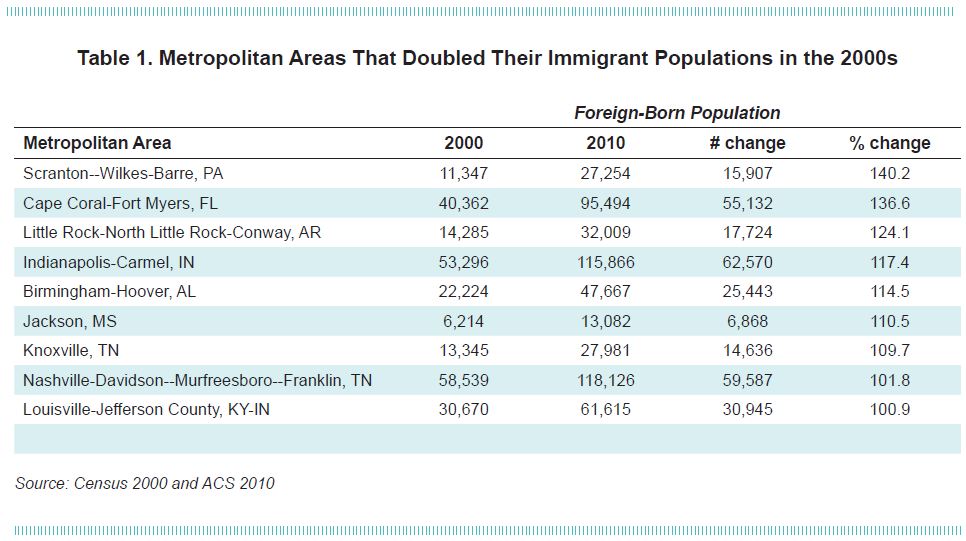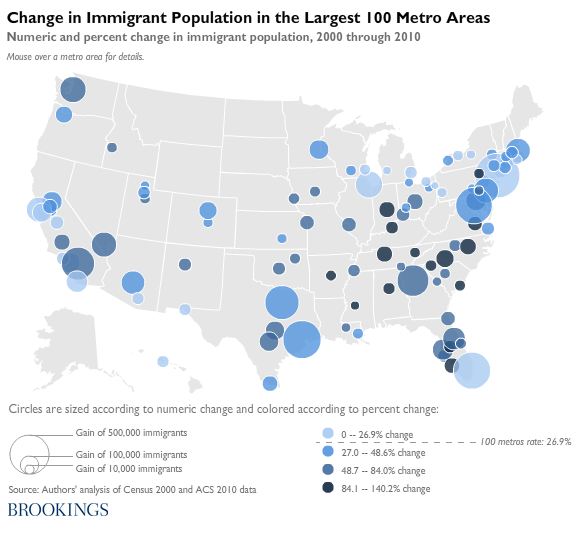Why Your Community is More Diverse… or Soon Will Be
Sam Rainer
When you get to know a person more, you learn how to love them better. The same principle applies to communities. Communities are made of individuals, and knowing your local context helps you love the people in them more. One critical element of understanding your community is tracking demographic changes. Perhaps one of the most important changes occurring in North America is the growing diversity of many local communities.
Brookings recently released a fascinating study on the changing landscape of immigration over the past ten years. Compared to previous decades, several changes are occurring in the immigrant population.
- They are spreading out into smaller metro areas.
- They are moving to suburbs over cities.
- They are more likely to be U.S. citizens.
- They are more educated.
Just look at where the immigrant population doubled in the last ten years—not in Miami or Houston, but rather in Scranton and Knoxville. These metro areas are not typically considered hubs of immigration.
Take a look at what has happened in the 100 largest metro areas over the past ten years. Some of the highest percent increases are in unlikely areas.
In my own community—a small town in Western Kentucky—over one-quarter of the population are minorities, while only ten years ago minorities accounted for less than 12 percent of the population. What was once a phenomenon in New York and Los Angeles is becoming normative in most communities across the United States.
The next generation will experience less homogeneity and more heterogeneity. Understand this shift. Learn about new groups of people moving into your community. And lead your church to love them.









This demographic report is part of the reason Ethnic to Ethnic Ministries, Inc is offer the facts to churches who are located in the mission field, their community. However without Biblical message, passion for the lost and principles of loving relationships centered in One Lord and Savior there is little in the heart of man to welcome people different than ourselves.